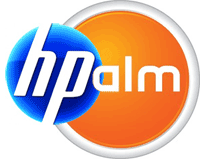From the start, lot of people (me included) loved a lot of things about WebOS, the mobile operating system that debuted on Palm’s Pre smartphone in 2009. We thought it had a shot at being serious competition for Apple–or at least we hoped it might. But my friend Brian X. Chen of The New York Times has a smart piece that makes the case that WebOS was doomed to disappoint, because its technical underpinnings and use of Web technologies made for a slow and generally disappointing experience:
“Palm was ahead of its time in trying to build a phone software platform using Web technology, and we just weren’t able to execute such an ambitious and breakthrough design,” said Paul Mercer, former senior director of software at Palm, who oversaw the interface design of WebOS and recruited crucial members of the team. “Perhaps it never could have been executed because the technology wasn’t there yet.”

